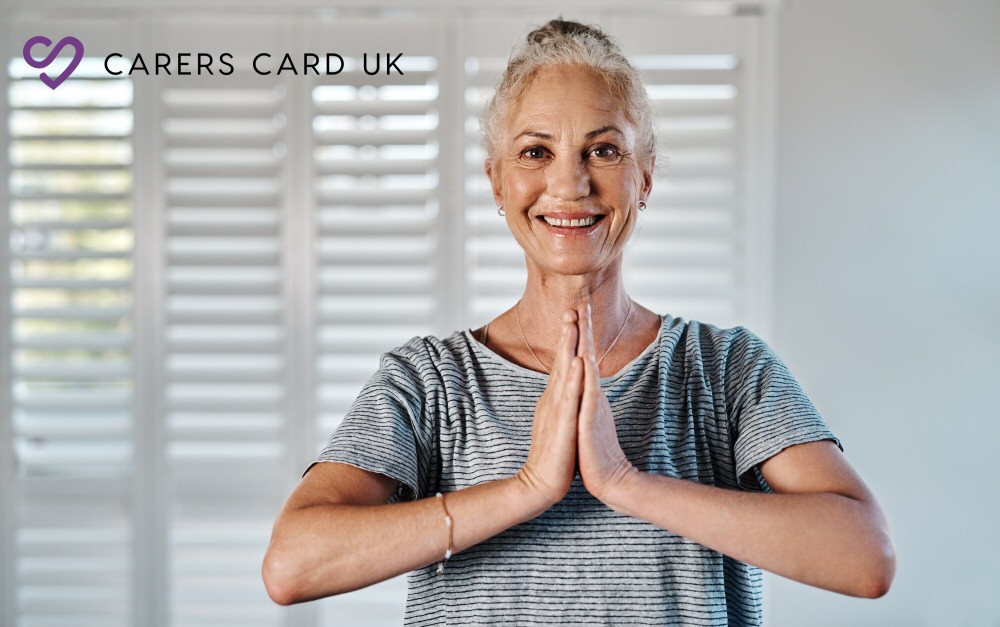Nurturing Your Wellbeing While Caring for Others
Caring for someone in need is a deeply rewarding experience, but it can also be physically, emotionally, and mentally demanding. Amidst the responsibilities of caregiving, it‘s crucial not to neglect your own wellbeing. While it may seem challenging, there are practical strategies and approaches you can adopt to look after yourself while caring for someone else.

In this article, we‘ll explore how you can prioritise your wellbeing and find balance in the midst of caregiving duties.
Acknowledge Your Needs:
The first step in looking after your wellbeing as a caregiver is acknowledging your own needs. It‘s common to prioritise the needs of the person you‘re caring for above your own, but neglecting your wellbeing can lead to burnout and exhaustion. Recognise that your needs are just as important and deserve attention.
Set Boundaries:
Establishing boundaries is essential for maintaining your wellbeing as a caregiver. Learn to say no when you‘re feeling overwhelmed or stretched too thin. Communicate your limits with family members, friends, and other caregivers involved in the care process. Setting boundaries doesn‘t mean you care any less; it means you‘re prioritising your own health and capacity to provide effective care.
Practice Self-Compassion:
Caregiving can be emotionally taxing, and it‘s easy to be critical of yourself when things don‘t go as planned. Practice self-compassion by treating yourself with kindness and understanding, especially during challenging moments. Remember that you‘re doing the best you can in a demanding role, and it‘s okay to make mistakes or seek support when needed.
Prioritise Self-Care Activities:
Incorporate self-care activities into your daily routine to replenish your physical, emotional, and mental reserves. This can include activities such as exercise, meditation, reading, spending time outdoors, or engaging in hobbies you enjoy. Even small acts of self-care can make a significant difference in reducing stress and promoting overall wellbeing.
Seek Support:
Don‘t hesitate to reach out for support when you need it. Whether it‘s from family members, friends, support groups, or professional caregivers, having a support network can provide emotional validation, practical assistance, and a sense of community. Remember, you don‘t have to navigate the challenges of caregiving alone.
Practice Mindfulness:
Mindfulness techniques, such as deep breathing, meditation, or mindfulness exercises, can help you stay grounded and present amidst the demands of caregiving. Mindfulness allows you to cultivate awareness of your thoughts, emotions, and physical sensations, helping you manage stress more effectively and respond to challenges with greater resilience.
Take Breaks:
It‘s essential to carve out time for yourself regularly, even if it‘s just a few minutes each day. Use this time to recharge, relax, and engage in activities that bring you joy and fulfilment. Remember, taking breaks isn‘t a luxury—it‘s a necessity for sustaining your energy and motivation as a caregiver.
Maintain Healthy Habits:
Prioritise healthy habits such as nutritious eating, adequate sleep, and regular physical activity. These habits provide the foundation for optimal wellbeing and resilience, enabling you to cope better with the demands of caregiving and prevent burnout.
Stay Connected:
Maintain connections with friends, family members, and social networks outside of your caregiving role. Nurture relationships that bring you joy, laughter, and emotional support. Staying connected with others can help alleviate feelings of isolation and provide perspective on your caregiving journey.
Celebrate Your Accomplishments:
Finally, take time to celebrate your accomplishments as a caregiver, no matter how small they may seem. Recognise the impact you‘re making in the life of the person you‘re caring for and acknowledge the dedication and compassion you bring to your role.
In conclusion, looking after your wellbeing while caring for someone else is not only possible but essential for sustainable caregiving. By acknowledging your needs, setting boundaries, practicing self-compassion, prioritising self-care activities, seeking support, practicing mindfulness, taking breaks, maintaining healthy habits, staying connected, and celebrating your accomplishments, you can cultivate a sense of balance and fulfilment amidst the challenges of caregiving. Remember, your wellbeing matters, and by taking care of yourself, you‘re better equipped to provide the care and support your loved ones need.
Posted: 16/06/2025
